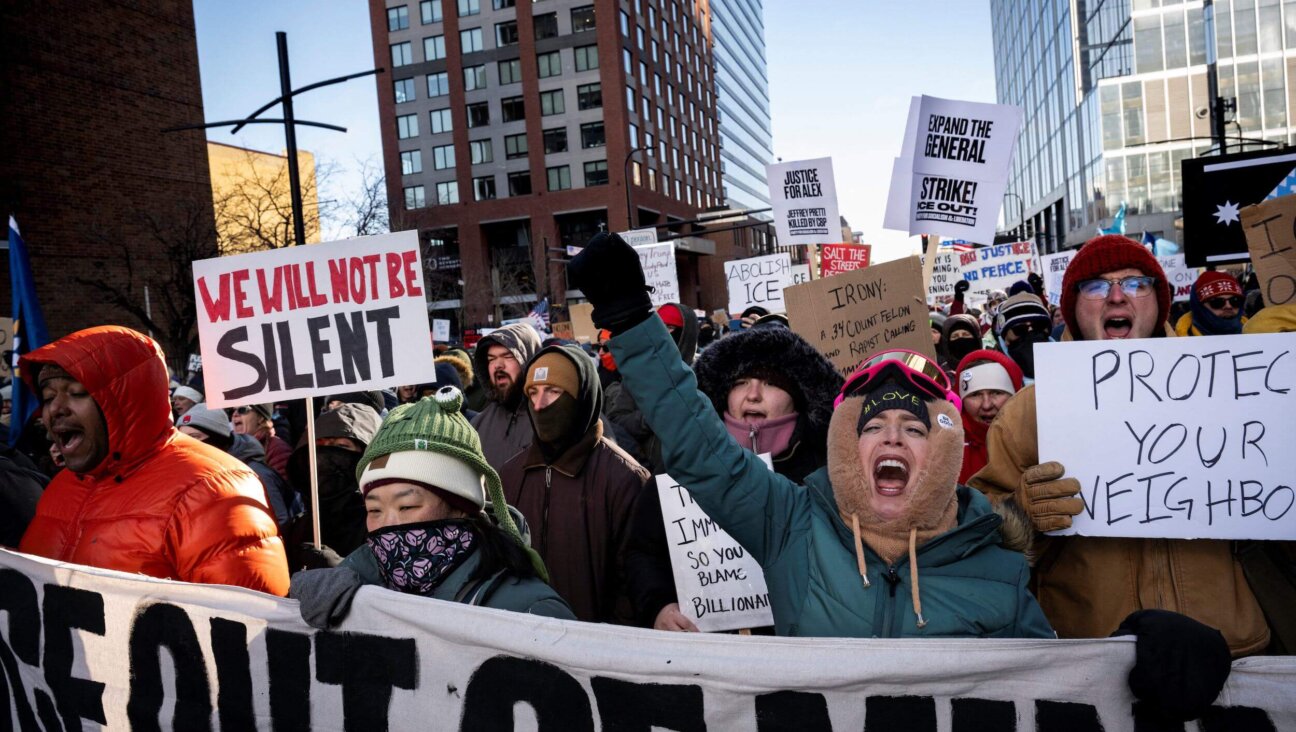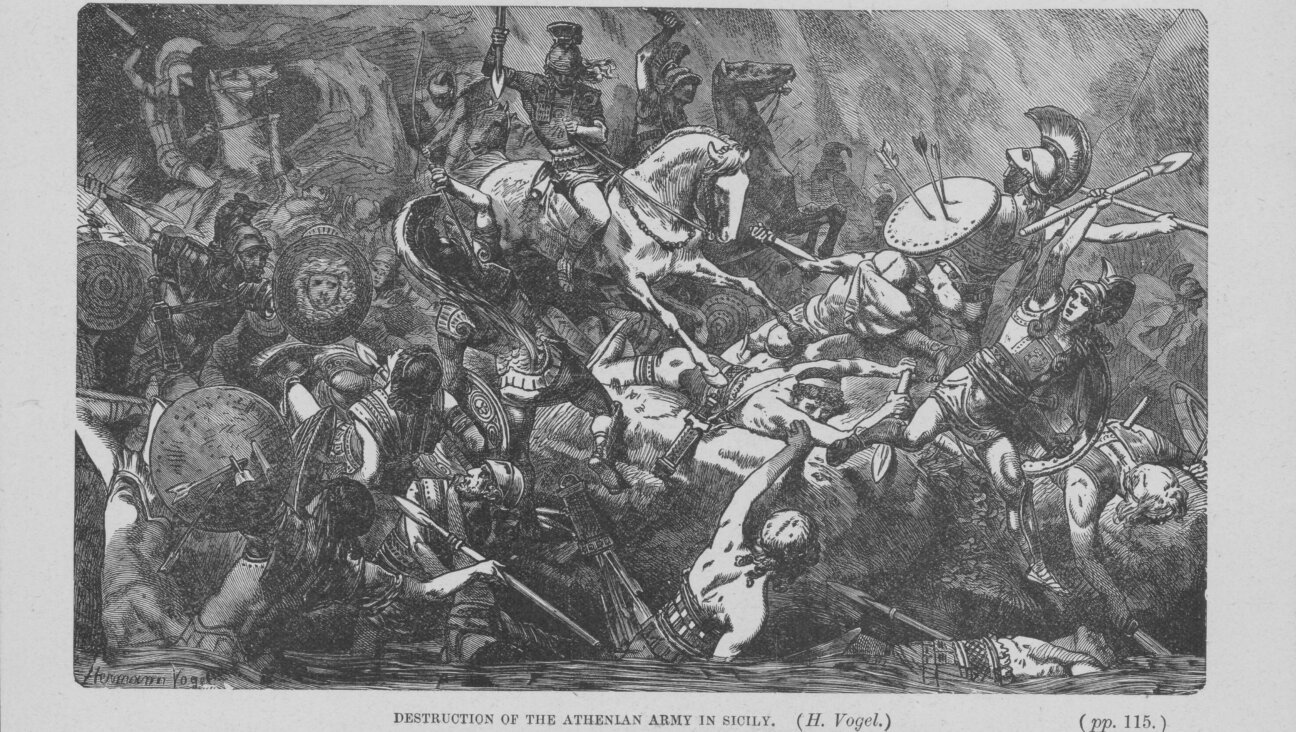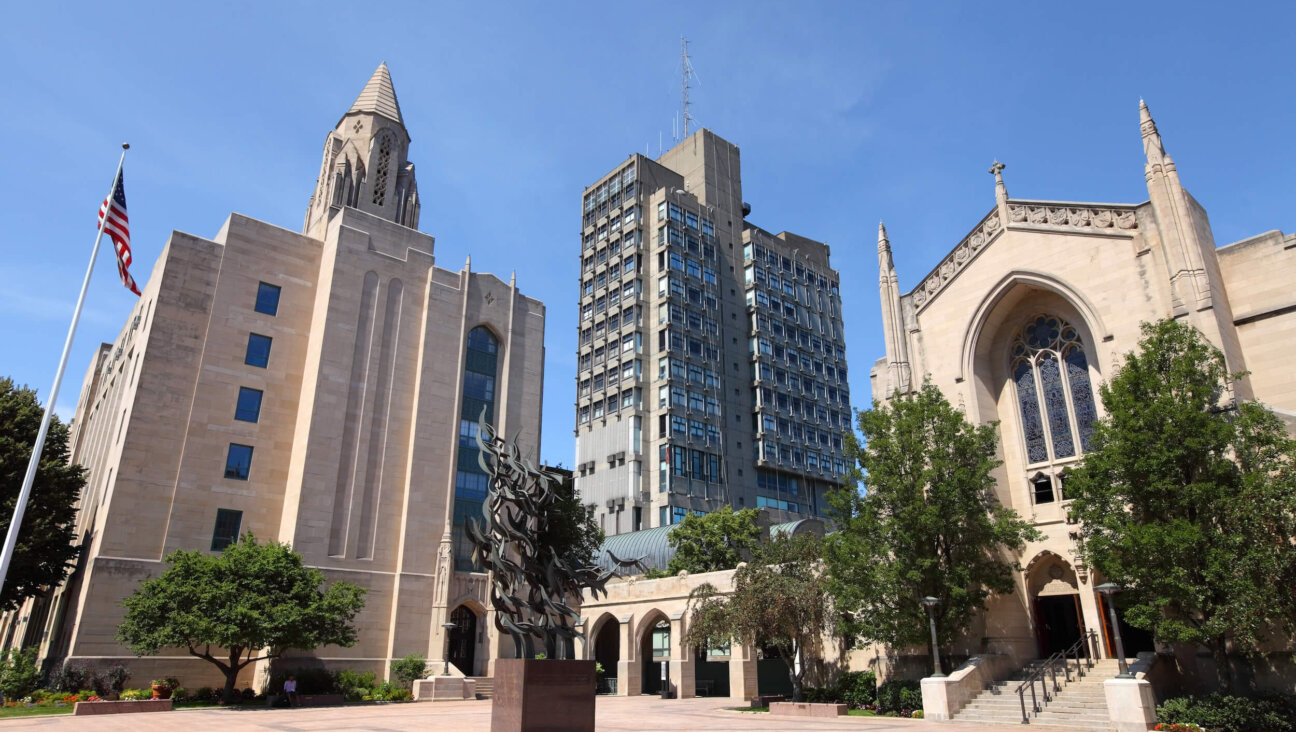Movement Cannot Feed Society on Resistance Alone
Painful ironies mark the new political landscape of the Middle East, following the shattering defeat of the Fatah movement in last week’s Palestinian Legislative Council elections. One symbolic moment tells the story.
As many of their countrymen watched in shock — one Palestinian scholar, who met a group of visiting French Parliamentarians on that very evening, was in tears — Hamas supporters in Ramallah celebrated their victory by climbing to the top of the Parliament building. They then proceeded to tear down the national red, green, black and white flag, and hoist in its place the transnational green flag of their movement.
This was not simply a capricious act driven by momentary elation; it was an authentic expression of where their true allegiance lies.
Hamas, which is the acronym in Arabic for the Islamic Resistance Movement, is in essence not a Palestinian national party, but the local branch of the Muslim Brotherhood. “The Islamic Resistance Movement,” reads Article 2 of its 1988 covenant, “is one of the wings of Muslim Brotherhood in Palestine. The Muslim Brotherhood movement is a universal organization which constitutes the largest Islamic movement in modern times.”
The movement is indeed a transnational party, which emerged in the late 1920s, first in Egypt, as a Muslim version of the totalitarian European parties. It is this basic identity that explains why the Hamas leaders are now willing to put at risk the future of their own people in pursuit of an ideological agenda.
True, the vote for Hamas was largely an act of protest against the moral and administrative bankruptcy of the party which held power in the Palestinian Authority since 1994, and brought the Palestinian people little but woe. True, some of the executive powers of governance, particularly those pertaining to security, will remain vested in President Mahmoud Abbas and the more moderate stance he represents. True, Abbas can also use the Palestine Liberation Organization as an alternative channel for diplomacy, side-tracking the Hamas-dominated legislature and Cabinet.
But no one should underestimate the disastrous consequences of this turn of events, first and foremost for the Palestinian people themselves.
Listed as a terrorist organization by the United States and the European Union, Hamas has built its reputation among its own people primarily upon the mastery of the art of murder. The blood of many hundreds of innocents is on its hands. It has glorified bloodshed and death, and even brought this cult into the kindergartens it runs within its social network. And while hinting at a hudna, or cease-fire, in the short term, Hamas promises more of the same if Israel and the world do not comply with its demands.
As to its position on Israel, and the Jews as such, as well as the West and all institutions of civil society — not to mention an interpretation of world history which sounds familiar to anyone who ever read the “Protocols of the Elders of Zion” or Nazi propaganda texts — these are evocatively described in the same 1988 covenant.
Article 7 quotes a Hadith, or traditional Koran commentary, “The Day of Judgement will not come about until Muslims fight the Jews (killing the Jews), when the Jew will hide behind stones and trees. The stones and trees will say ‘O Muslims, O Abdullah, there is a Jew behind me, come and kill him.”
Article 22 tells us that the Jews, “With their money, they took control of the world media, news agencies, the press, publishing houses, broadcasting stations, and others…
“They were behind the French Revolution, the Communist revolution and most of the revolutions we heard and hear about, here and there. With their money they formed secret societies, such as Freemasons, Rotary Clubs, the Lions and others in different parts of the world for the purpose of sabotaging societies and achieving Zionist interests…
“They were behind World War I, when they were able to destroy the Islamic Caliphate, making financial gains and controlling resources. They obtained the Balfour Declaration, formed the League of Nations through which they could rule the world. They were behind World War II, through which they made huge financial gains by trading in armaments, and paved the way for the establishment of their state.”
Hamas is the nearest we have today to an active fascist movement in the region, albeit with the religious concept of the Islamic Ummah, or nation, replacing the race-based version. To even fantasize about peace with a group whose thought is shaped by such vicious urges is a delusion worthy of the tragedy of appeasement in 1938.
It now falls to the movement’s leaders, somewhat to their own surprise, to see how they can settle the complete contradiction between such views and the basic needs of their own people. That is truly the ultimate irony.
The food, water, oil, gas and electricity supply of Gaza and much of the West Bank all come from Israel. All Palestinian exports and imports flow through Israeli ports. International aid is vital for their people, made utterly dependent on external largesse by the failures of the Fatah leadership.
In the real world — not the fantasy land in which leader Mahmoud al-Zahar recently declared that Hamas will “cut off” the Palestinians from Israel — this will soon have a real and painful effect on their ability to provide what the Palestinian people expect from them.
Israel, and the world, should now take a ringside seat and watch them struggle with themselves; no need to rush to find signs of moderation before the real crisis kicks in. The burden of proof that the Hamas covenant has been annulled, that terrorism has been abandoned and renounced, and that they are ready to work within the framework of the two-states solution is now on them.
Eran Lerman, a former senior Israeli military intelligence officer, is director of the American Jewish Committee’s Israel/Middle East Office in Jerusalem.














